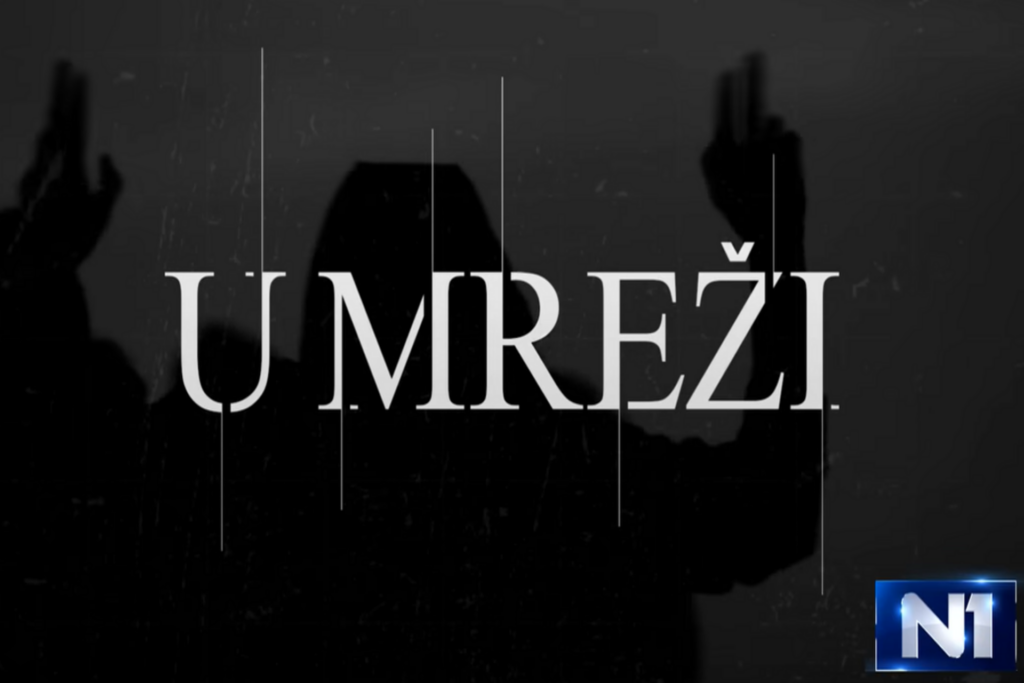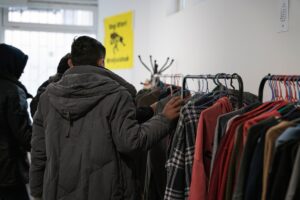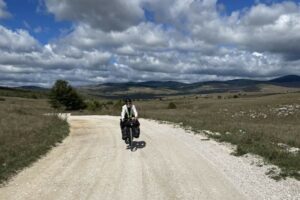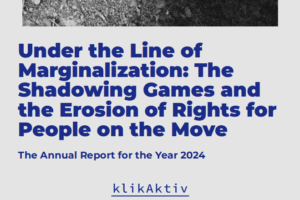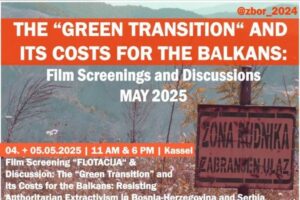In early 2023, Serbian independent news channel N1 aired a documentary on the situation of People on the Move at the Serbian-Hungarian border. It talks about the powerful groups of smugglers controlling the territory and profiting off people’s need to cross the border, about how this is affecting People on the Move, how Serbian institutions and police are turning a blind eye and about the experiences of local Serbians with the recent developments.
We talked with the producer of the documentary, Ksenija Pavkov, about her motivation to highlight topics like this, about how the documentary was perceived in Serbia, the importance of independent media coverage and about how all of this concerns each and every one of us, EU- and non-EU citizens alike.
You can watch the documentary with english subtitles here.
How did you come across the topic and why did you decide to make a documentary about it?
I have been following the refugee crisis practically since the opening of the Balkan route in 2015. Initially, it was the number one topic covered by all media. Serbia, in comparison to neighboring countries, stood out with a humane reception of people on the move and a compassionate media narrative. However, as the years passed the topic was pushed to the sidelines, and reports on the refugee crisis only surfaced when armed conflicts occurred in the northern part of the country. I work as a correspondent for N1 Television in Vojvodina, the northern province of Serbia, where refugees often gather in an attempt to cross the border. I made an effort to regularly report on the lives of people trying to enter the European Union, share human stories, and keep the narrative alive in almost complete media silence. Only a few journalists in the entire country regularly cover this issue.
As I frequently stayed in the border area, I realized that something unusual was happening — investigative journalists had already published a story about how international criminal smuggling gangs operate in northern Serbia. Through on-site research, social media analysis, and conversations with people, the pieces of the puzzle fell into place. The result is the documentary film „Caught in the Web,“ which sheds light on a previously almost entirely unknown criminal underworld of smuggling networks. Everyone is involved in this network: from gang leaders in the countries where refugees come from, to the local and refugee population in Serbia, all the way to the Serbian police and the highest authorities.
What were the difficulties arising while preparing and filming the documentary?
There were numerous obstacles, and a significant barrier was the language barrier. For research, I hired translators for Arabic and Farsi, who themselves struggled to translate certain texts because smugglers often use slang. There is also a specific slang that has developed in Serbia.
Another significant problem was that smuggling gangs want to remain invisible to the local population. This means that they want to hide the operation of their business from the public at all costs. It also implies that refugees using their services are intimidated and prohibited from talking about using their services. It should be clarified that absolutely all refugees arriving in Serbia are forced to use smugglers‘ services. Without their assistance, it has become impossible to independently cross the wire at the Hungarian border. There is practically a parallel authority on the northern border of Serbia – the authority of smugglers who have divided the territory among themselves and are fighting for it.
One of the biggest obstacles, however, is the absolute silence of relevant institutions — the Ministry of Internal Affairs, the Refugee Commissioner, all the relevant ones. They refuse any cooperation with journalists. My research has shown that the reason for this is that the state is somehow involved in smuggling — corruption exists at the lowest level, among individual police officers on the ground, and extends to high-ranking officials in security services.
What were reactions by locals on the ground – What were the reactions by viewers/your surroundings after the documentary was aired?
The documentary was met with excellent reactions, especially among those living in the border area. These are people witnessing the criminal smuggling business in front of their eyes, while most media and the state remain silent about it. This convinced them that what they suspected was happening in the woods near their homes — armed gangs from Afghanistan, Morocco, and Syria control the flow of people across the border, exploiting refugees who have already gone through hell just to reach Serbian territory.
As for local authorities, police, prosecutors, or government representatives — there was absolutely no reaction. Nothing unusual for Serbia, where the judiciary is largely under the control of the regime.
Why did you decide to make it accessible to an international audience by adding English subtitles?
Because I believed that this topic could interest audiences across Europe, and it is a subject that concerns the entire European Union. For years, there has been a significant migration of people towards the borders of fortress Europe, which has failed to find any solution for all these people. Instead of a humane approach, instead of the principles of human rights on which European society is based after World War II, the continent is once again surrounded by fences. People are constantly dying in the Mediterranean. Instead of investing money and resources to help people, Europe is investing more and more money in defending its external borders. This is also one of the first sentences in my film „Caught in the Web“—“In the shadow of the wire surrounding Europe, a lucrative business has developed – where the foundations of the European Union are abolished, its principles.“
I will also remind you of the unlawful practice of pushbacks, which are prohibited by international law and happen daily at the external borders of the Union.
I believe that is the essence; Serbian society is corrupt and overloaded with crime. This is part of the reason why powerful smuggling gangs were able to develop on Serbian territory. The greater part of the problem is in the hands of those who have the larger share – and that is, of course, the European Union. If the infamous quota deal had ever been reached, if a place had been found for all the people rushing for a better life, there would be no smugglers or exploitation and torture of refugees.
Why is it so important to have independent investigative journalism formats in Serbia?
Because the state hides information from citizens. The regime does not care about the public interest. Their only interest is to stay in power.
What’s the situation on the ground like right now after the latest events?
During the summer and early fall in the border area, there were practically daily gunshots. According to the information I have, the number of gangs, especially Afghan ones, has multiplied, waging wars for the territory they control. Armed conflicts were not only happening in the woods but also in towns and villages. After the shooting in the village of Horgoš, where three refugees were killed at the end of October, the Serbian police organized the largest arrest operation to date. It seemed as if there was a state of war in the country—armored vehicles of Serbian security forces and helicopters were in villages with just a few thousand inhabitants. This operation lasted for days, and the state’s message was that it finally wanted to deal with smuggling gangs.
In my opinion, this police action was just a public show, a farce, ahead of the elections. It should be explained that the population in the border area became extremely frightened due to daily shootings, and they started blaming the state for not being able to protect them. The authorities staged a pre-election show and moved the refugees to camps in the south of the country.
This is not a problem that can be solved with a single police action. Moreover, it could have been resolved if there was the will for it. It is wrong to expect that a corrupt and crime-burdened small Serbia can cope with such challenges.
It is not a „refugee crisis“; it is a civilizational change or, if you will, a migration of people. These people can bring a lot of good to Europe. The question is only how we will determine our attitude towards it. This relationship will determine us as a civilization in the future.
The questions were asked by Paula Simon, the interview was conducted on 16/12/2023

